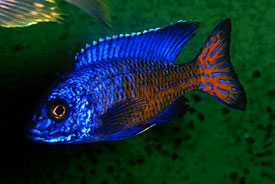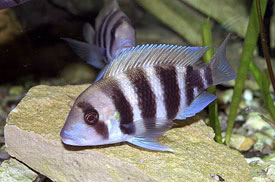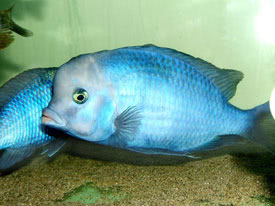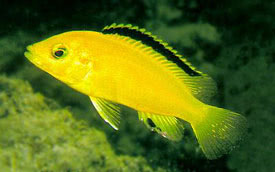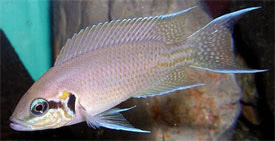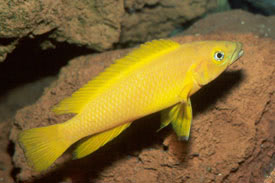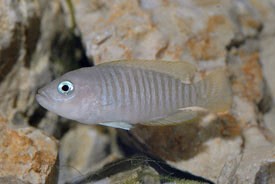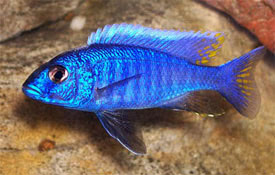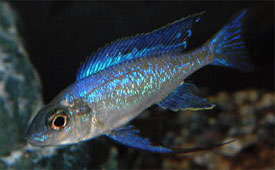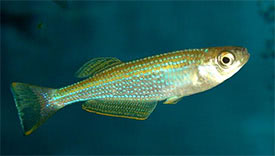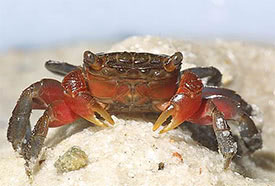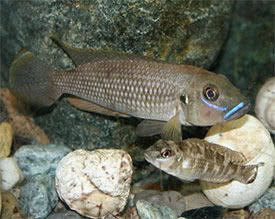
 Magyarul / Hungarian
Magyarul / Hungarian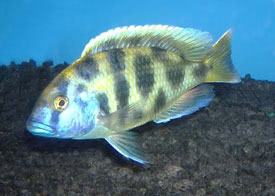
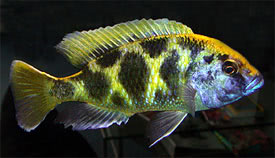
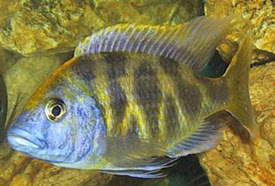
- Scientific name: Nimbochromis venustus
- Common name: Venustus
- Group: Cichlids
- Habitat: Eastern Africa,Lake Malawi
- Size: 25 cm.
- Biotope: Sandy parts of Lake Malawi.
- Social behavior: A territorial fish that is aggressive and intolerant of its own species. Keep one male with several females. Towards other species it is usually non-aggressive. A predatory fish that will eat smallfish.
- Diet: Live, small fish, Tubifex , aquatic insects, earthworms, insect larvae, crustaceans, chopped meat, large flakes, pellets, tablets, vegetables, spinach, peas, spinach.
- Breeding: Easy, but needs a large tank.
- Tank: Minimum 450 litres
- Population: 1 male and 3 females for 500 litres.
- Decoration: Use rock formations as a back-drop with a coral sand substrate in the foreground. Leave a large open swimming area inthe middle of the tank and place plants along the sides and back of the tank.
- Temperature: 25-26°C
- pH: 7,6-8,8
- Hardness: 10-25 NK°
- Lifespan: 10 years
Description: A large, oval-shaped fish. The coloring of the male is much more intense than the female. Thehead is pale blue, while the body is light golden-yellow. The cheeks and the lower jaw is dark blue. Severalirregular dark blue splotches can be found cover the body. The upper part of the dorsal fin is bright yellowwhile the lower half is dark blue.The caudal fin is also yellow and blue. The other fins are dark blue.
The male is larger and more colorful.
This fish forms a matriarchal family and the mother performs mouth brooding responsibilities. Thewater should be between 81-84°F (27-29°C).Up to 120 eggs are laid. The eggs are incubated in the mouthfor a period of three weeks.The mother looks after her young for 10 days, with the young spending nights in her mouth. Whenthe mother is gravid, she is easily frightened and may prematurely expel the eggs.



